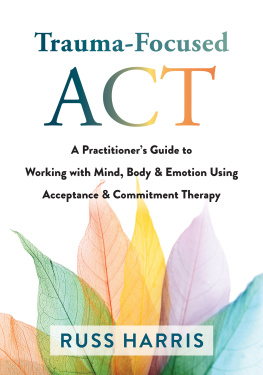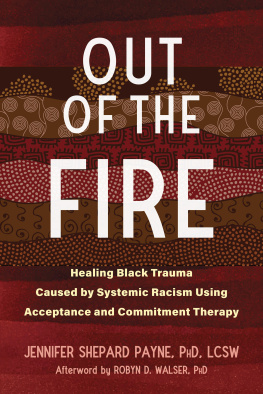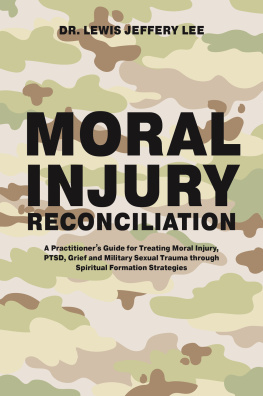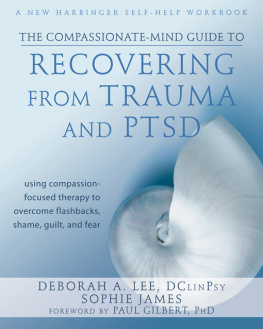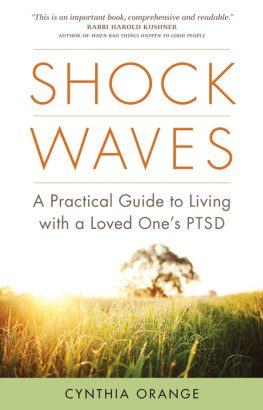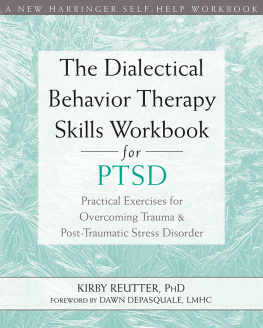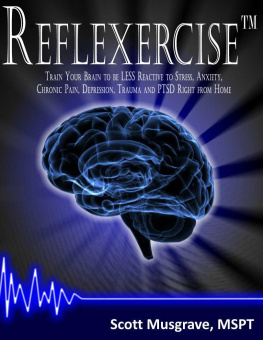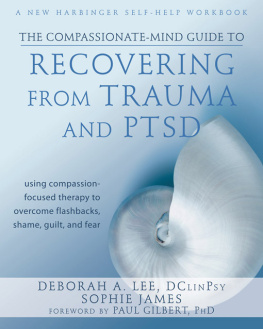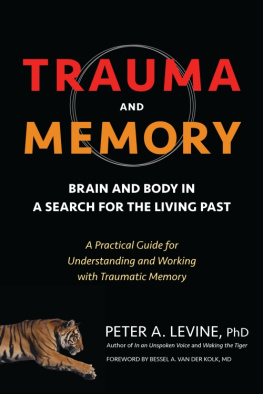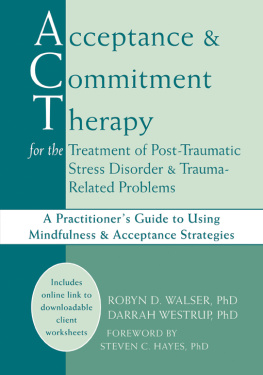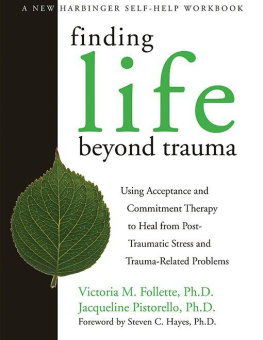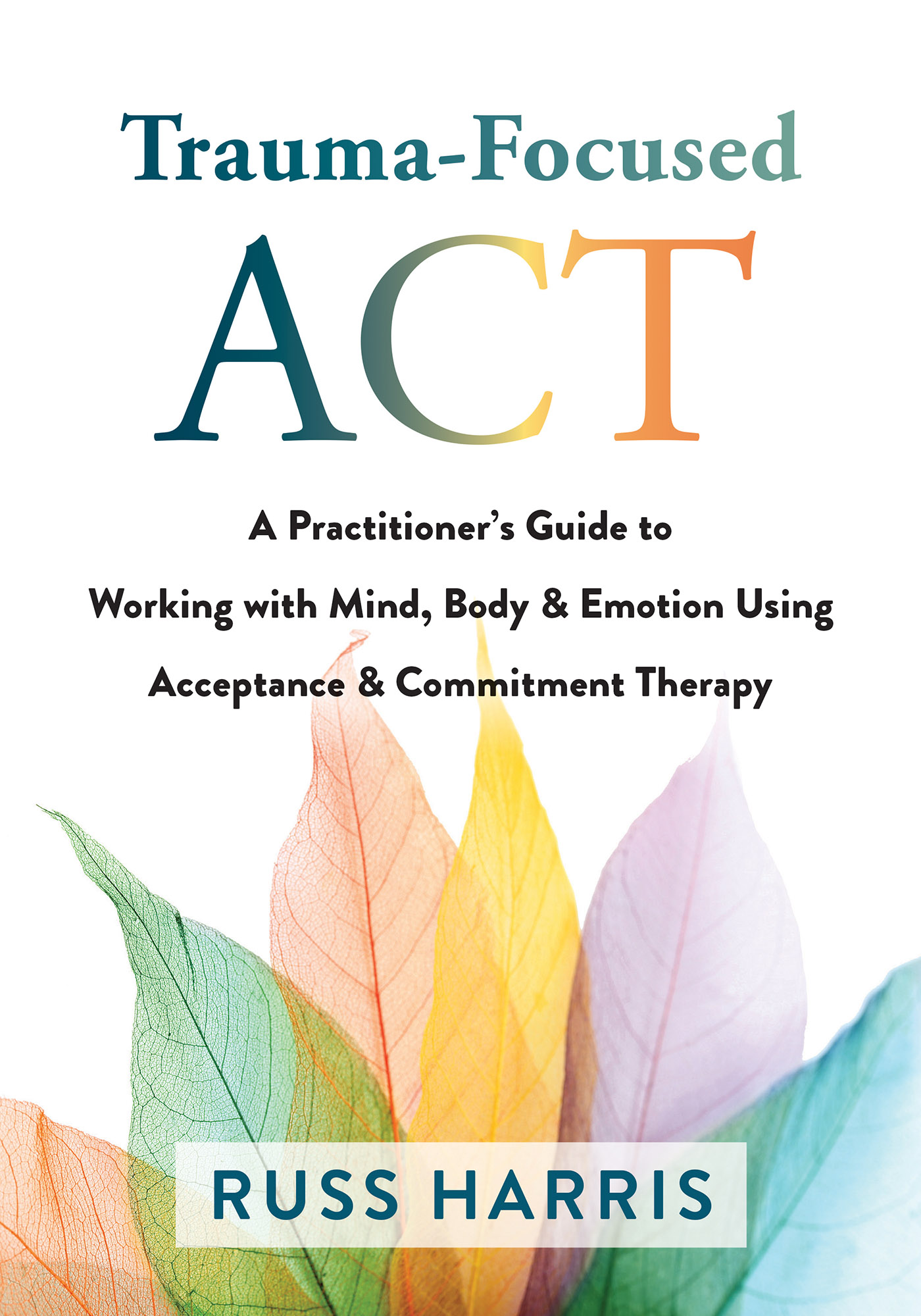Trauma-Focused ACT is going to go down as one of the great contributions to the field of trauma-informed care. Written in a highly accessible, practical style, Harris provides the acceptance and commitment therapy (ACT) therapist with a comprehensive, step-by-step approach to working with traumatized clients. The book is chock-full of tidbits of clinical advice that could only come from a highly skilled therapist with loads of experience working with trauma. If you read this book from cover to cover (and maybe read it again), you will have a complete sense of how to roll out, manage, and complete a high-potency treatment with a traumatized client. There arent many books out there that achieve this high ground, and this is one of them! Highly recommended.
Kirk Strosahl, PhD , cofounder of ACT, and coauthor of Brief Interventions for Radical Change
This beautifully written and intensely practical book offers a rich array of clinical insights and strategies covering the many nuances and concerns that show up when working with various forms of trauma from an ACT point of view. I consider it the ACT book for trauma, and a must-read for mental health practitioners who are looking for a compassionate and transformative approach to helping their clients heal old wounds and engage their lives now in ways that matter to them.
John P. Forsyth, PhD , coauthor of The Mindfulness and Acceptance Workbook for Anxiety and Acceptance and Commitment Therapy for Anxiety Disorders
Nobody writes with greater clarity and offers more concrete, useful, and innovative suggestions and strategies than Russ Harris. This is the definitive book for treating trauma-related difficulties with compassion, courage, and cutting-edge scientific tools.
Todd B. Kashdan, PhD , professor of psychology, and author of Curious? and The Upside of Your Dark Side
This book is a major milestone in understanding how ACT can support recovery from trauma. In this comprehensive manual, Russ Harris provides rationales, exercises, and transcripts to give therapists clear guidance on working effectively with the full range of problems associated with trauma. From hypervigilance, reexperiencing, avoidance, freezing, and dissociation to responses of shame and guilt Trauma-Focused ACT provides numerous sensitive, respectful, and progressive ways to work with clients. Written with warmth and compassion, this is the indispensable guide for using ACT to help people with trauma.
Eric Morris, PhD , senior lecturer and psychology clinic director at La Trobe University, and coauthor of Acceptance and Commitment Therapy for Psychosis Recovery
Weve known for a long time that psychological flexibility skills are very important in addressing trauma, but weve had a harder time creating trauma-focused versions of ACT that can establish those skills. This book helps fill that gap, from one of the clearest writers and most creative practitioners in the ACT community. I learned something new in every subsection. Highly recommended.
Steven C. Hayes, PhD , Nevada Foundation Professor in the department of psychology at the University of Nevada, Reno; and originator of ACT
Another gem from Russ Harris. Trauma work can be dauntingfraught with anxiety and vulnerability on the part of the therapist. By the end of the opening paragraph, you will feel your shoulders relax and know you are in capable and compassionate hands. Its all here: from the best, most accessible description of the polyvagal theory youll find, to the careful construction of exposure hierarchies. Even as you venture into especially challenging areas such as suicidality or moral injury, Russ Harris provides a solid framework and proven strategies for helping clients with traumatic histories to live the life they want and deserve. An absolute must for anyone doing this important work.
Chris McCurry, PhD , clinical psychologist, and author of Parenting Your Anxious Child with Mindfulness and Acceptance
This book is full of wonderful guidance on how to help those with post-traumatic stress disorder (PTSD), and provided me with many new exercises and insights into this disorder. If you work in this area, read this book.
Michael P. Twohig , professor at Utah State University, and coauthor of ACT in Steps
A trademark of Russ Harris is his ability to break ACT down into language thats clear, pragmatic, and clinically useful, and to illustrate ideas with great practitioner-client dialogue. And Trauma-Focused ACT is no exception. What jumped out at me with this book was how thoroughly it explores the nuances of ACT in the context of trauma. If you are after guidance about how to use ACT in this domain, then this book leaves no stone unturned.
Nic Hooper , senior lecturer of psychology at University of the West of England, and author of The Unbreakable Student
Trauma-Focused ACT is a great book. It speaks to therapists in a really accessible way, helping them to understand trauma in a way that will be supremely useful to their clients. The book gives a wide range of tools and strategies that are psychologically well-informed, compassionate, and based on solid scientific evidence. The book integrates perspectives from neuroscience, psychology, and a number of forms of evidence-based psychotherapyall from within a coherent ACT framework. This book is an essential resource for all therapists.
David Gillanders , head of clinical psychology at the University of Edinburgh
Russ Harris has once more written a simple, practical, comprehensive, easy-to-follow, state-of-the-art textbook that is an essential read for both novice and experienced clinicians. Each chapter is rich with examples, transcripts, metaphors, worksheets, tips, and common pitfalls that enable the reader to both deliver the intervention with confidence and gain a deeper understanding of the ACT model and approach to trauma. Couching the whole approach in cutting-edge research adds to the value of this book as a great resource and an absolute must-have in any clinicians toolbox.
Maria Karekla, PhD , associate professor at University of Cyprus, and coauthor of Cravings and Addictions
I always appreciate Russ Harriss books in their ability to clearly communicate concrete, practically useful information on ACT in an accessible way thats helpful for newer and more advanced practitioners alike. This book achieves that once again, containing an impressive collection of insightful perspectives, tips, and exercises that are coherently integrated within an overarching model of delivering trauma-focused ACT (TFACT). It provides a notably in-depth exploration of how ACT can be tailored to individuals with trauma, including adaptations to common ACT exercises, strategies for overcoming challenges, and integrating other relevant theories in this area.
Michael Levin, PhD , associate professor at Utah State University, and coeditor of Innovations in Acceptance and Commitment Therapy
Trauma-Focused ACT is essential reading for all ACT practitioners working with clients who have experienced trauma. The book provides cutting-edge and up-to-date coverage of ACT theoretical concepts and practical innovations for practitioners. Russ never fails to impress with his accessible yet theoretically on-point exploration of the topic.
Louise McHugh , professor in the school of psychology at University College Dublin, and coauthor of A Contextual Behavioral Science Guide to the Self
Russ Harriss ACT publications are renowned for being incredibly accessible and clinically useful. I can honestly say that with Trauma-Focused ACT , Russ has outdone himself. At every step along the journey, Russ generously offers modifications and practical tips to help us when things dont go according to plan, while keeping us grounded in the science of ACT. Trauma-Focused ACT is an important clinical resource that truly honors the complexity of human suffering and the interpersonal therapeutic endeavor.

